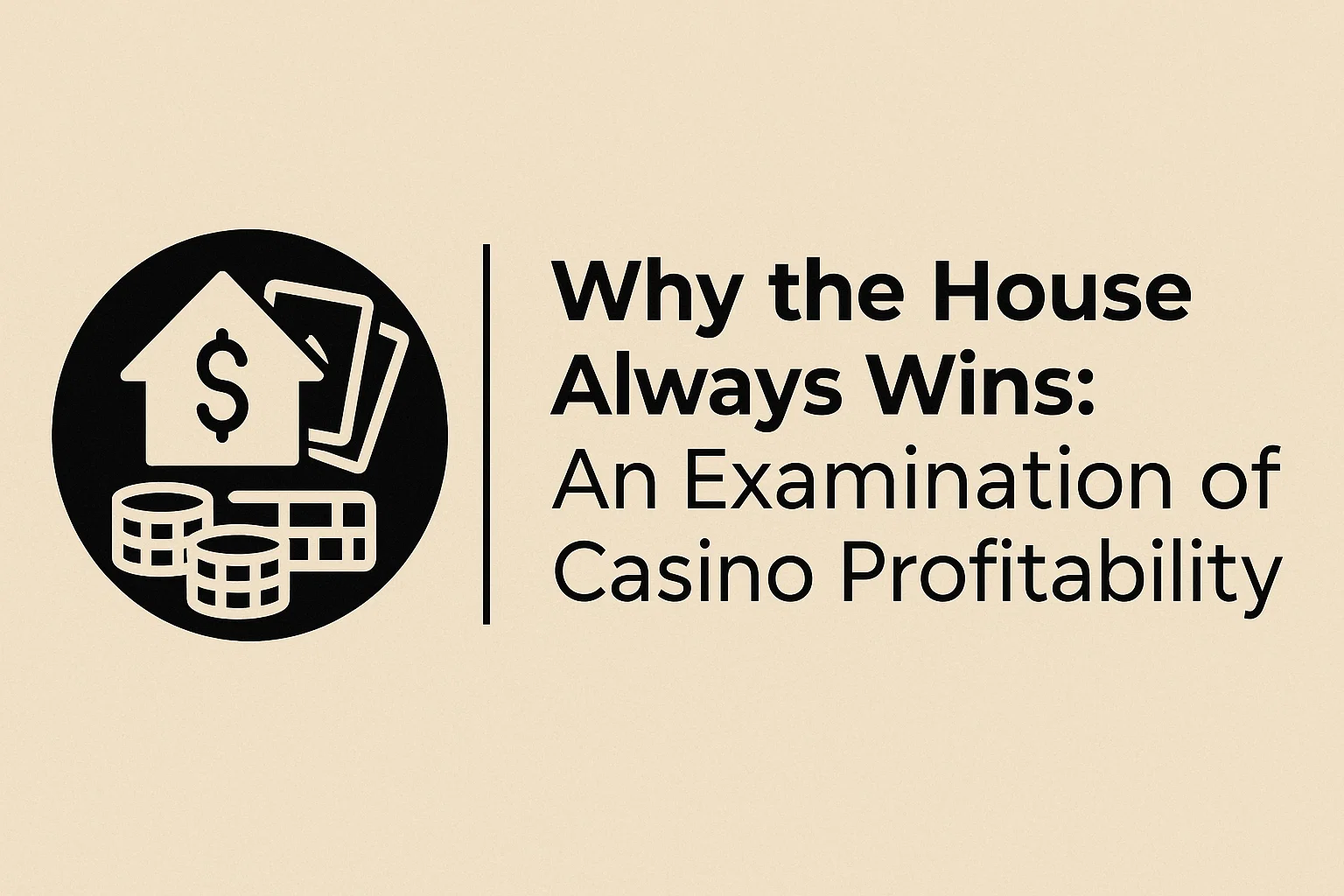Why the House Always Wins: An Examination of Casino Profitability

There is one certainty regarding gambling: aside from the possibility that a player may win, nothing else is left to chance. In the end, the house always wins. A casino is a business, not a charity that dishes out free money. Like any business, it has a business model in place that is designed to ensure its profitability.
The House Edge
No matter which game you choose to play, keep in mind that the chances of the casino winning your money are greater than your chances of winning the casino's money. That's because all casino games are designed to provide the house with an edge, lowering the odds and payout sizes.
For example, a roulette wheel is numbered one through 36, so you might think that this gives the odds for winning a single number bet as 36 to one. However, roulette wheels also have a zero, and they occasionally have a double zero and even a triple zero. The actual odds of winning are thus 37 to one, 38 to one, or 39 to one, not 36 to one.2
House advantage in blackjack, that is, the likelihood advantage in the casino's favor, is the average gross profit that one may reasonably anticipate the casino to make from each game. A casino might be making a very modest profit of somewhere from around 0.5% to a little over 2% on the lowest house advantage games. It might be taking profits of between 15% to 40% on some other games.
How Players Lose More Than They Expect
The majority of those who are aware of the house edge still do not appreciate its impact on their bankrolls. They believe that the 5% or so advantage the house has at the roulette table means that they can sit down with $100, play for a few hours, and the chance is that they will only lose about $5. Nothing could be further from the truth. They fail to understand that the house edge is not taken from their starting bankroll but from the sum they wager.
For instance, suppose an individual is placing $5 wagers on each spin of the roulette wheel, with 50 spins occurring every hour. Although the individual placing the bets is winning certain wagers and losing others, they are betting $250 per hour. When the house edge fully affects, after four hours of play they lose $50, or 5% of $1,000—a sum 10 times higher than what they had anticipated.
The Added House Advantage
The longer you play, the closer the result of your play is likely to be to the house advantage. A player may be in the lead in the short term. However, over the long term, the house advantage will wear them down to unprofitability.
That is why casinos do everything they can to have you play longer. Casinos, for example, are famous for lacking clocks and windows. They are that way intentionally so that the players won't notice time flying by.
A majority of the first-timers are happily surprised to discover the management will give them free drinks. Those complimentary drinks will have their price, though, because being drunk will not usually improve judgment when it comes to making bets.
Why Do People Gamble When the House Always Wins?
- People gamble for fun and because, despite the low probability, there is a possibility of winning some money.
- The majority of gamblers are aware that the house has an edge. However, they are not aware of the magnitude of that edge.
- Casinos are tricky, giving gamblers just enough hope to keep betting. At some point, the more you wager, the bigger the house edge becomes.
In Which Games Do the Casinos Have the Biggest Edge?
The odds are in favor of the casinos for each game they offer, although the house edge varies for each game. Sic bo and keno are the games that give the house the biggest edge. Blackjack and video poker are the ones where gamblers would be most likely to win.
What Proportion of Gamblers Win?
Few, as casinos are highly profitable businesses. Various studies have been published over the years, and the statistics vary. In 2013, The Wall Street Journal acquired a private gambling database, according to which just 13.5% of the gamblers end up winning.4
The Bottom Line
Despite all the laws of probability being in its favor, the house edge varies significantly between the different casino games. The games with the smallest advantage to the casino are usually blackjack and video poker, and the game most skewed in their favor is usually keno.
The minimum edge is only if the player is playing the odds to perfection, which few people do. The house edge increases as the players bet less optimally. American roulette is still one of the most recognized casino games, but it carries a 5.26% house edge. The house edge on slot machines runs as high as 15%; for keno, it is a whopping 40%.
